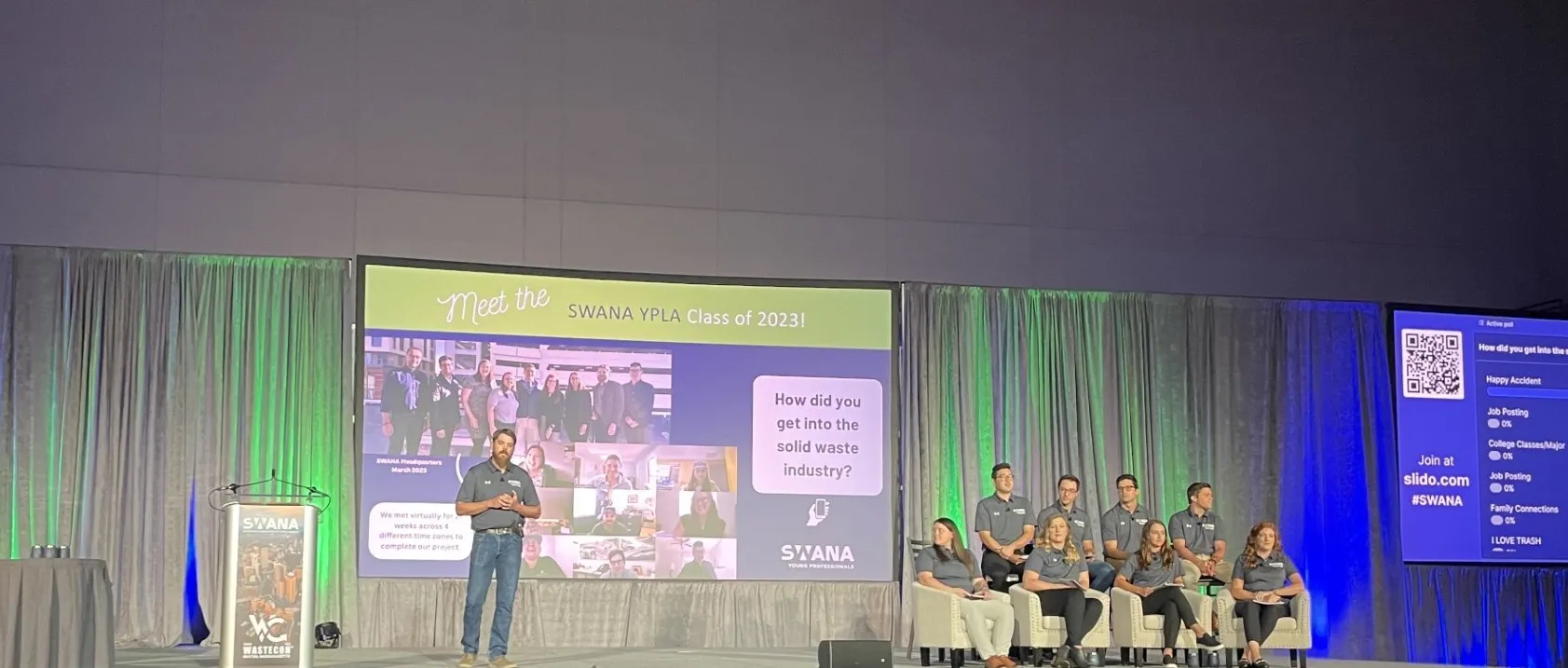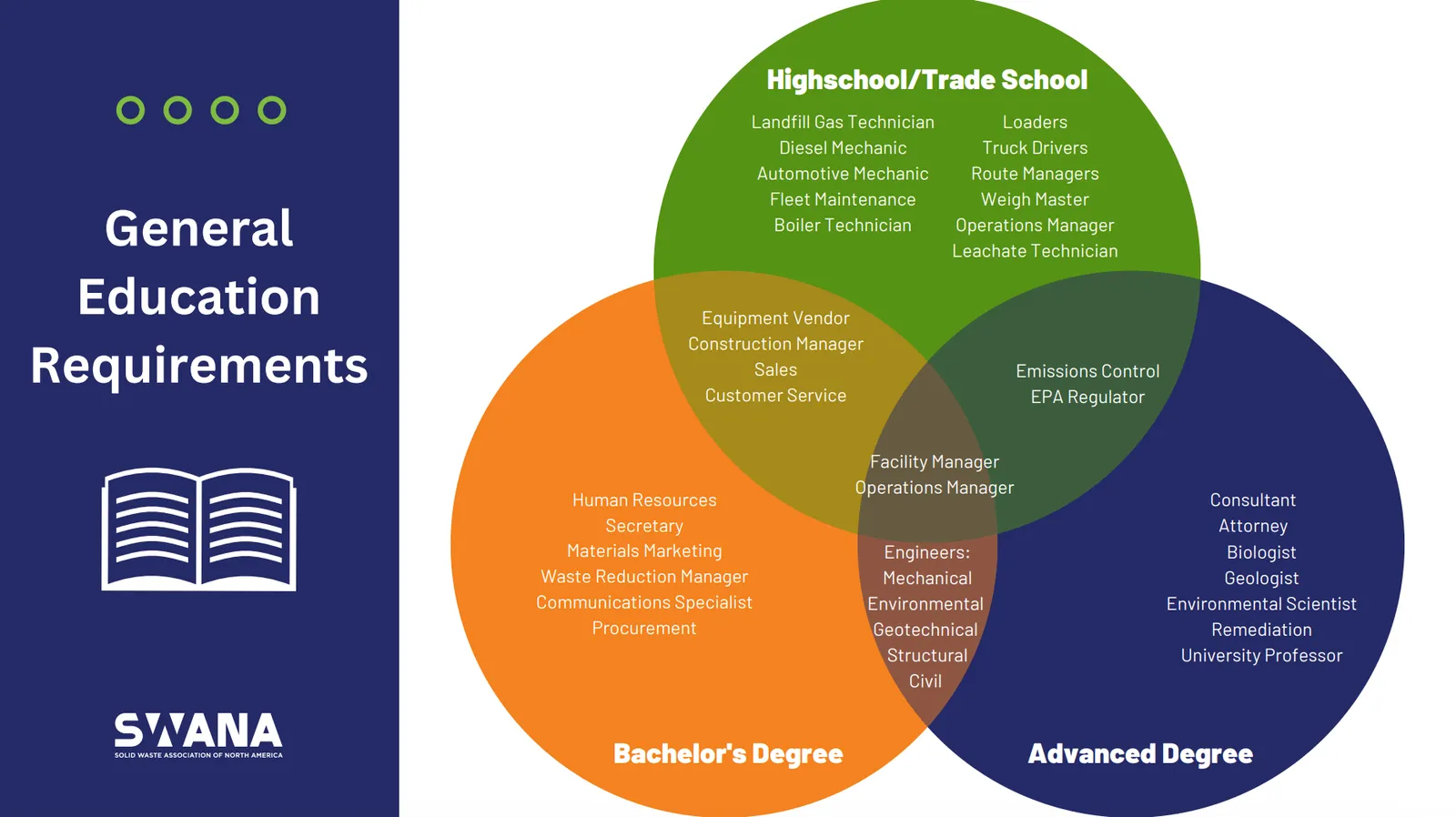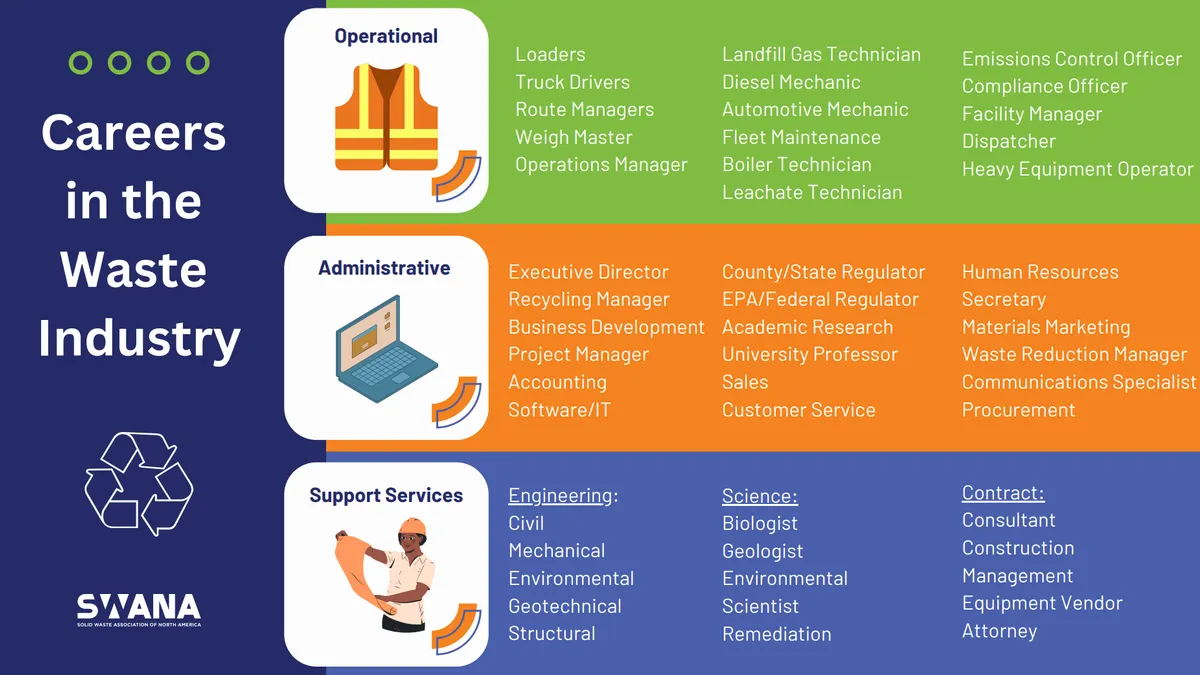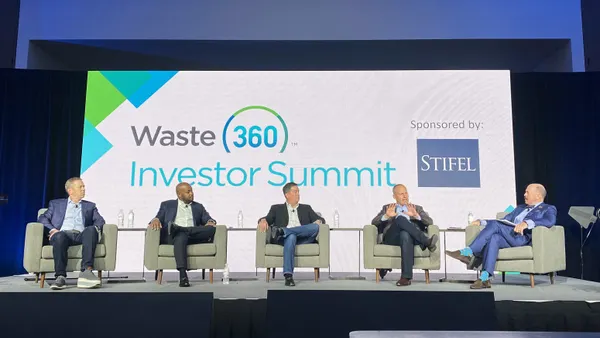The waste and recycling industry is continuously looking for new ways to recruit more early career professionals. Last week, a group from the Solid Waste Association of North America’s Young Professionals Leadership Academy debuted a report at WASTECON that they hope can be a new industry resource.
"There is an urgent call to reshape the industry's image and foster a new generation of dedicated, enthusiastic individuals who believe responsible solid waste management is a valuable resource,” said Kathryn Sandoe, founder of the firm Light Echo and a former waste industry professional, while introducing the YP leaders at the Boston event.
Room for improvement
Nine SWANA members participated in the latest YP Leadership Academy program, hailing from employers such as waste companies, public sector agencies and engineering firms.
They were tasked with developing a report focused on a technical issue or one of they key pillars from SWANA’s strategic plan. The group decided to focus on a goal from the plan to “reframe perception of the industry as employers of choice.” This included 27 weeks worth of virtual meetings and a retreat at SWANA’s headquarters in Maryland.
Many of the YPs reported entering the industry as a “happy accident,” a sentiment also shared by an informal audience poll, which they said was a sign that the sector’s recruiting could be expanded.
"We need to make ours exciting and interesting in order to bring young professionals and the next generation of employees in to our industry,” said Nate Francisco, executive director of Southern Idaho Solid Waste.
Earlier this year, the group conducted surveys among the general population, solid waste industry professionals, solid waste industry YPs, and SWANA YP liaisons in an effort to better understand these perceptions.
Results from respondents in the broader YP category (defined as age 35 or younger) showed a clear gap in engagement within SWANA — 41% said they weren’t involved at all in their local chapter and 27% said they didn’t feel integrated into the broader organization. Many YP liaisons, a position intended to help new professionals connect with their local chapter, also reported not feeling supported in their roles.
When asked how much SWANA membership had helped their career growth, 9% of the YP respondents said “a great deal,” 15% said “a lot,” 20% said “a moderate amount,” 40% a “little” and 17% “not at all.”
"There is a pretty big disconnect between the young professionals within the SWANA organization and their local chapters,” said Cassie Horton, a regional safety manager with Waste Connections, adding that there could be opportunities to bolster engagement for new members.
Findings also indicated that respondents from the general public don’t have a good understanding of the sector, with 40% believing that their waste goes to “the dump” after it’s collected and other answers revealing only partial confidence in recycling systems. Only 31% of respondents from the general public said they would “consider a career in the solid waste industry,” which the YPs view as a clear issue given other workforce trends.
An informal audience poll at WASTECON estimated double-digit percentages of people could be leaving the industry workforce in the next five years.
“That's a lot of knowledge and talent leaving the industry in a very quick amount of time,” said Horton.

Industry resources
The group’s “Bridging the Gap” report identified multiple suggestions such as centralizing the YP program structure, standardizing welcome communications, expanding the use of social media and improving SWANA’s digital resources and online communities.
While more changes are anticipated once SWANA’s next executive director starts her job, the association did announce one development at the conference aimed at YP engagement. Three $1,500 scholarships will now be available to help fund travel and registration costs for YPs to attend future SWANA events. This is in addition to existing YP scholarships via other SWANA programs.
The new report also suggested expanding industry partnerships and initiating an industry-wide marketing campaign. One finding was that more can be done by industry employers to highlight pay rates and benefits, flexibility in hours and lower barriers to entry in terms of educational requirements.

The group also found that more could be done to highlight the sector’s role in society, as well as the many evolving focus areas such as recycling, organics management, electric vehicles, methane emissions, PFAS contamination, growing adoption of artificial intelligence and other technology.
"A lot of the projects that we are working on are going to impact future generations and we need to let them know that they can be a part of that,” said Nicole DiGiorgio, a business development manager at Waste Connections. “A lot of people are looking for roles that they're passionate about.”
The group developed a marketing toolkit, which they hope will be adopted by industry employers. This includes infographics with key facts about the industry, summaries of advancements such as landfill gas collection, details on potential industry careers, advancement opportunities and career testimonials.
Nicholas Rodricks, chief of Baltimore County’s Bureau of Solid Waste Management, said this also ties into a broader issue of improving communication with the public and their understanding of the industry. As the National Waste & Recycling Association has also been talking about recently, industry employers are looking for new ways to tell their story after many years of operating in the background.
Rodricks shared an example of a prior slogan at his agency, “pick it up, make it disappear,” as an example of messaging that should be improved and then tied it back to hiring trends.
"Those misconceptions also make it hard to recruit people. That person who doesn't know which bin to put plastic in also probably doesn't know that they could fly a drone for a living,” he said, referring to landfill operations. "If the frame of reference is put it out on the curb, somebody with a truck will come get it, you don't know about the rest of the careers and opportunities."











